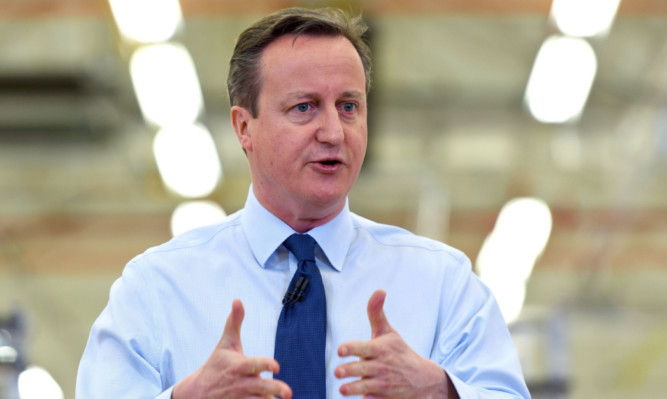I apologise for going back to the future and the United Kingdom’s place in it.
However, this week we finally saw the substance, if not the complete details, of the results of David Cameron’s negotiations with the other 27 members of the EU.
From his point of view he has made some progress but it is hard to avoid the conclusion he set the bar too high.
He promised too much in the hope of placating the most vehement Eurosceptics in his party.
However, nothing was ever going to satisfy them. They dream of an England that never was and a Britain that never can be. They want out of Europe full stop.
The Prime Minister was never going to get out of the other 27 members of the EU anything which required change to existing treaties.
Why? Ireland and Denmark for example require a referendum for any treaty change.
And no government wants to have such a referendum if it can avoid it since if it is lost, its credibility can be mortally wounded.
So by his ambition was his negotiation a failure? Hardly.
If it had not been in the near hysterical atmosphere in the run-up to a referendum it could have been regarded by some as progress but not the wholesale resetting of the UK’s relationship with the EU.
The truth is that that was never on.
And now what? In the unlikely event I was asked to advise him I would tell David Cameron to move on and not to allow the referendum to be about the negotiations.
Concentrate on jobs, the economy, security and Britain’s place in the world.
Make the referendum about the principle of being in or out.
Remind the voters about the benefits for British business and industry of membership and the access to the largest single market in the world and the jobs which that access underpins.
Give practical examples of the impact on people’s pockets of leaving the EU.
Remind them that the alternative of the relationship with Brussels from outside the EU, like that of Norway and Switzerland, comes at a price.
Both countries are required to accept all of the principles of the Single Market but have no influence over them or their implementation. Tellingly, they must accept the same rights of free movement of individuals and capital.
In the case of Norway, they have to pay into the EU at a higher per capita rate than the UK.
Finally, ask them which country has the highest cost of living in the world and which is second? Answer: Switzerland first and Norway second.
Mr Cameron should abandon any effort to persuade his rebellious Eurosceptic MPs in the Commons.
They would rather be out of Europe and in government.
His concentration should be on those who support Britain’s continued membership and those who can be persuaded to support it.
Together they will make up a comfortable majority.
NO NEED FOR BBC PELTERS
No one believes me when I tell them that on BBC Radio 4’s Friday Night programme Any Questions the panellists do not know the questions in advance.
This evening I shall be a member of the panel when the programme comes from Glasgow.
One edition of the programme which sticks in my mind was from Manchester on the eve of the first Gulf War after Saddam Hussein had invaded Kuwait.
A multinational force, with United Nations authority, was about to take military action to expel his army from Kuwait. A number of the audience disapproved of military action.
About 10 minutes from the end of the broadcast, a number of highly respectable and middle aged ladies went into their shopping bags and started to pelt the chairman Jonathan Dimbleby and the three MPs Cecil Parkinson, Ann Clywd and myself, with eggs. I doubt if it will happen tonight but you never know.
What is the point of telling you all this?
It is simply to say that whether on radio or television, the BBC has a long and distinguished record of the presentation of politics and political argument which other countries and networks envy.
It does this with professionalism and integrity which is why the efforts of some in Government north and south of the border to control the corporation must be resisted.
